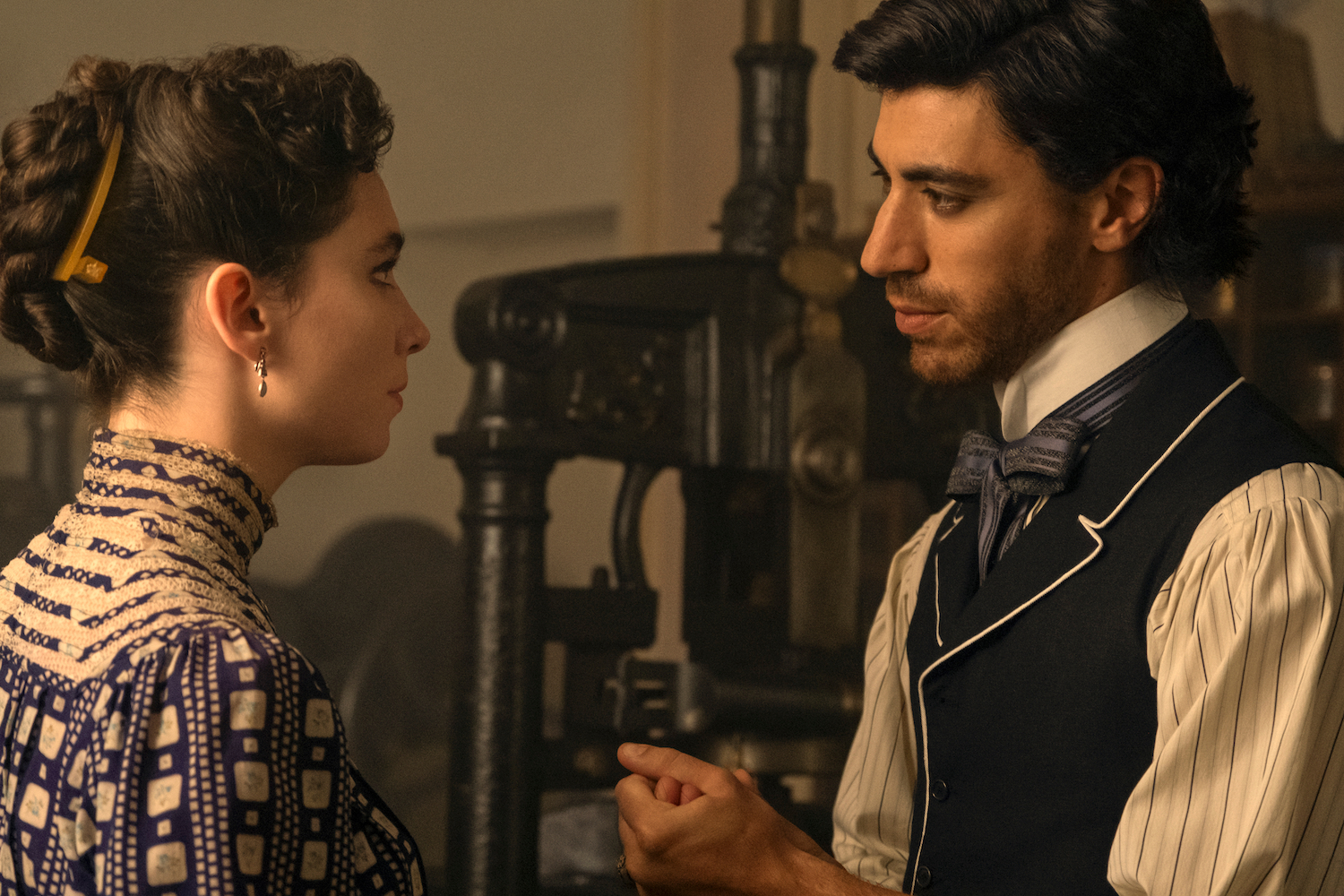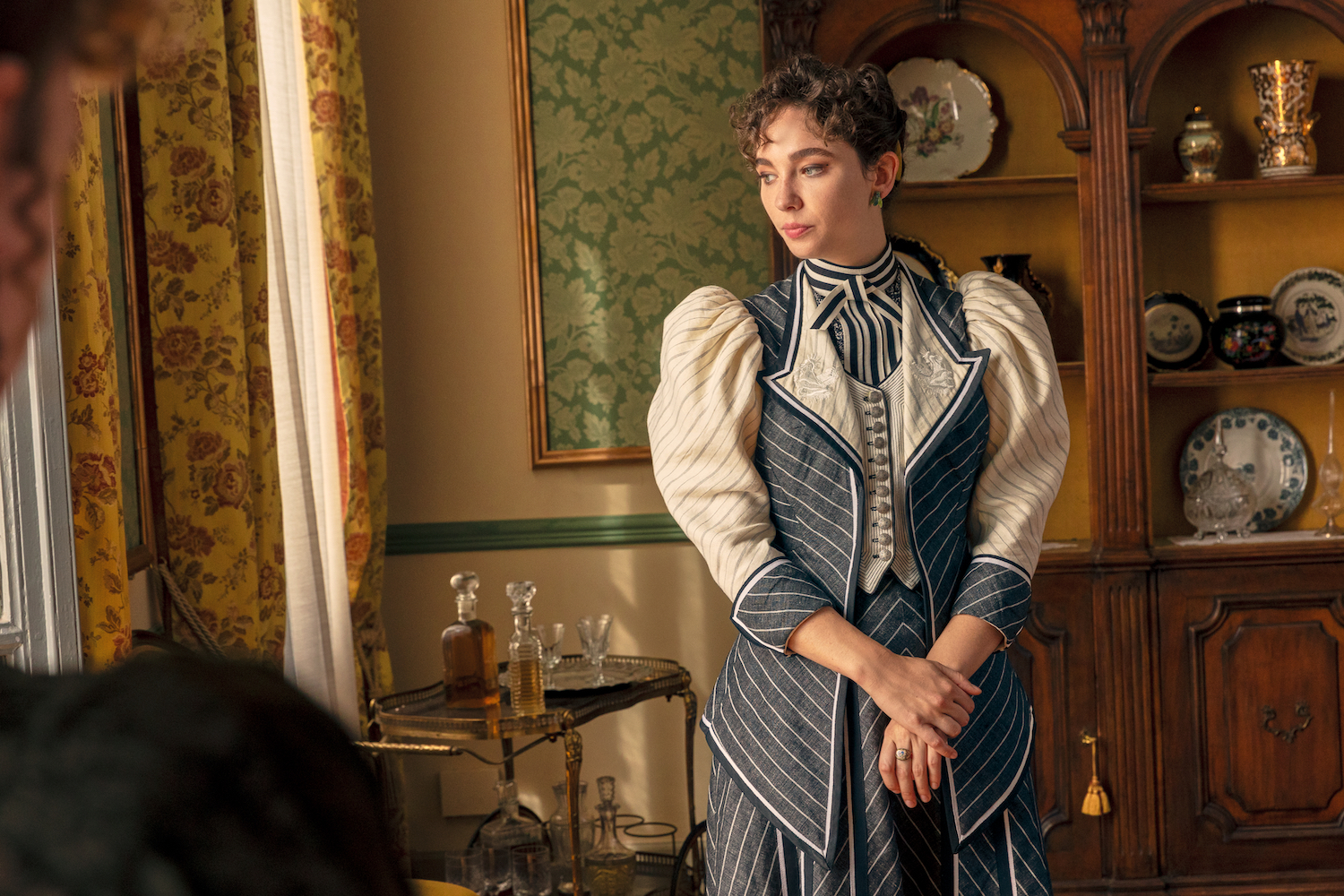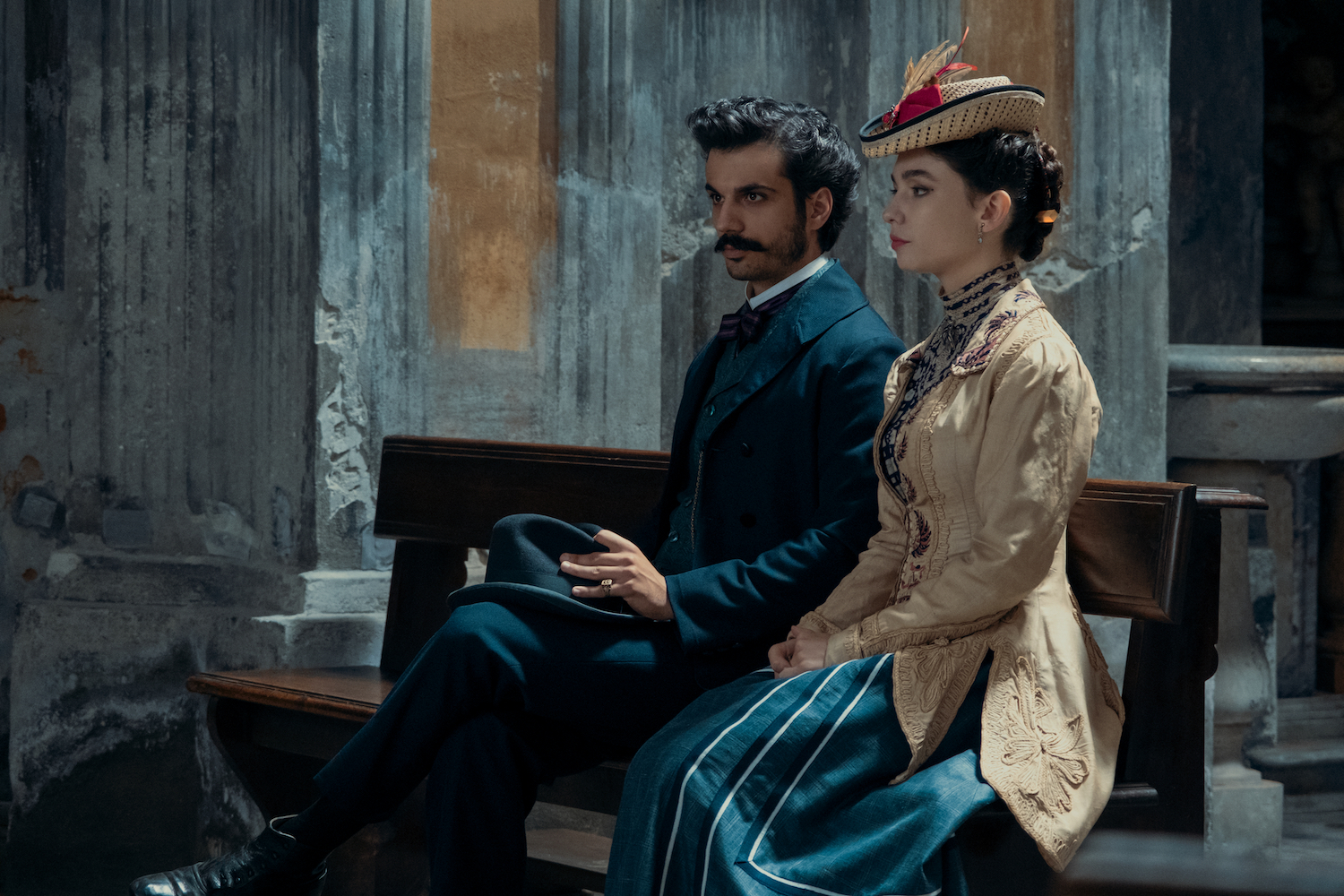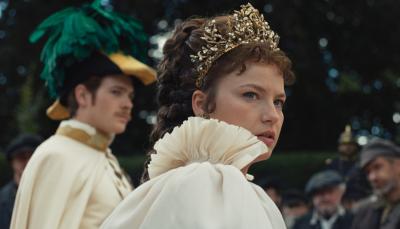'The Law According to Lidia Poët' Is Still the Best Period Drama You're Not Watching
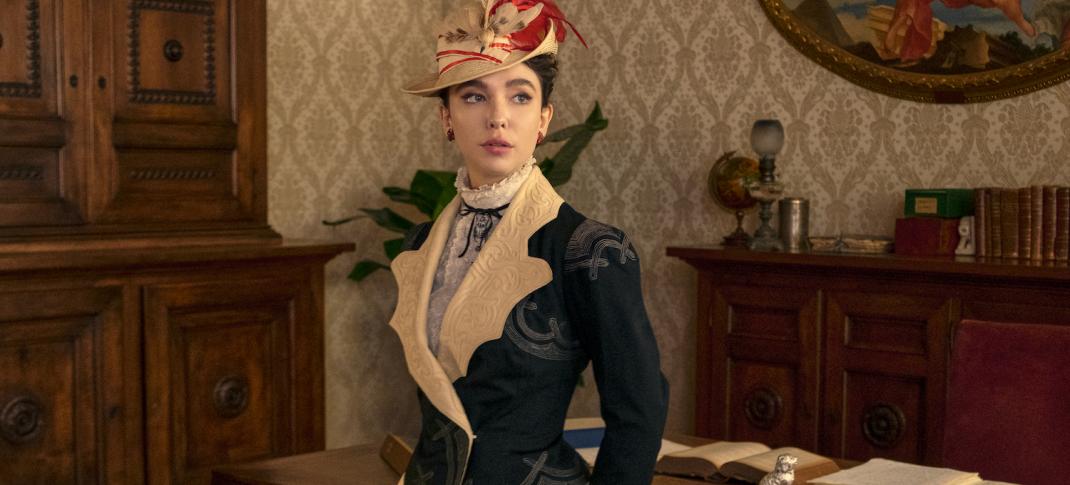
Matilda De Angelis in "The Law According to Lidia Poet" Season 2
(Photo: Netflix)
When you think of "Netflix period drama," the odds are that your mind will jump right to Bridgerton. The colorful historical romance mixes swoony love stories with lavish costumes and an entertaining (if vaguely defined) take on what a post-racial Regency period might have been like. You can probably name a few others, too: The Crown's soapy take on the contemporary British monarchy or Peaky Blinders's gritty post-World War I gangland politics. There's the Bridgerton spin-off Queen Charlotte and the surprisingly popular German drama The Empress. However, you likely haven't sampled the streamer's hidden gem: The Law According to Lidia Poët.
You should fix that immediately. A lush period piece with firmly modern sensibilities, this Italian series is one part legal/crime procedural, one part family drama, and one part feminist manifesto, with a heaping dollop of romance and sexual tension on top. Best watched with the subtitles on to catch the arch delivery of its snappy dialogue, it's a series that will feel immediately and intimately familiar to fans of shows like Miss Scarlet or Miss Fisher's Murder Mysteries.
The story of yet another uber-capable woman forced to blaze a new trail through a male-dominated world that looks down on her, Lidia Poët, is a delight from its first moments. With the arrival of the show's second season, its appeal has only gotten stronger. Season 2 doubles down on what made the first so much fun, giving luminous star Matilda De Angelis more complicated material and even better fashion. (These hats!).
Technically a "Netflix Italian Original," The Law According to Lidia Poët is based on (or at least inspired by) the true story of Lidia Poët, generally acknowledged as Italy's first female lawyer. Her determination to practice her chosen profession sparked a nationwide debate about the role of women in both the legal world and public life. Her struggle was ultimately successful, and she was officially made a legal advocate when she was 65. The Netflix series follows a much younger Lidia as she fights to live life on her terms, which includes everything from her insistence on helping with her brother's legal defense cases to her no-strings-attached flings with an assortment of handsome men.
The series' first season was largely procedural, interspersing case-of-the-week style stories with Lidia's more extensive relationship and family dramas and her ongoing appeal to the legal bar that rejected her. Its second is much the same, though it weaves its weekly legal investigations into a larger mystery surrounding the murder of journalist Attila Brusaferro (Jacopo Crovella). A close colleague of Lidia and her brother-in-law/love interest Jacopo's (Eduardo Scarpetta), Attila stumbled onto a complicated mystery involving corruption at high levels of the Italian government.
For her part, Lidia has seemingly accepted her ostracization from the Italian legal community (for the moment, at least). But she's now agitating for even more sweeping, systemic change, campaigning for female suffrage, befriending the wife of an influential senator, and bullying her brother, Enrico (Pier Luigi Pasino), into running for Parliament to become the voice for women she is not yet allowed to be. Her reputation has grown by an order of magnitude, and everyone seemingly now knows who she is.
The show handles its gender politics with a deceptively light touch. It is content to show how exceptional women must struggle to be taken seriously in a society that refuses to see them as equals instead of tell. Lidia's niece Marianna (Sinéad Thornhill) and sister-in-law Teresa (Sara Larazzo) get more to do this season, as the younger girl considers the prospect of wedding a young aristocrat. Lidia's romance with Jacopo stumbles not because of any lack of feeling or chemistry but because he wants something (marriage) she's not sure she'll ever be able to give him.
Jacopo and Lidia's relationship is just as compelling in the series' second season, but it is now more complicated by external, real-life factors. Lidia's decision to refuse his marriage proposal hangs over much of the season, shading their every interaction with the painful tension that comes from two people trying desperately to deny how much they mean to one another. But Jacopo also has sins to answer for: The successful launch of his newspaper has come at the expense of the Poëts, and his betrayal has almost completely ostracized him from Enrico and Teresa (and from Lidia, a lot of the time).
Lidia Poët chooses this moment to introduce a handsome new prosecutor named Fourneau (Gianmarco Saurino), who is impressed by Lidia's intelligence, enamored by her investigative ability, and unfazed by her career interests. It's not unusual for a show to create a love triangle after the lead has found her endgame partner; however, other series could take lessons from the deft way Lidia Poët handles Fourneau's introduction. His relationship with Lidia, which slow burns from professional respect to something more romantic, stands on its own without taking anything away from her existing connection with Jacopo. Fourneau also has secrets he struggles to deal with and is genuinely likable for his own sake.
It's the best sort of love triangle, in which it's ridiculously easy to see why she would be drawn to both men and what each of those relationships offers her that the other lacks. The best thing about Lidia Poët Season 2 is the depth and complexity it grants to all its relationships. The same can't be said for the season's mysteries-of-the-week, which are not as deft as those in Season 1, hobbled by the show's need to fit everything into the more intricate web of Attilla's murder. But it makes up for this lack by leaning further into the relationships that make the series tick. Viewers will likely be captivated by the subsequent tension that flavors Lidia and Jacopo's every interaction post-break-up.
However, the bond between our fearless heroine and her brother is the show's beating heart. For much of Lidia Poët's first season, Lidia and Enrico were at odds, with him behaving as if he viewed his younger sister as little more than a family oddity on good days and a complete embarrassment on bad ones. But Season 2 sees Enrico become Lidia's biggest cheerleader. He listens to her professionally and otherwise, trusts her judgment, and is generally in awe of her talent and intellect. He's become so proud of her, and it shines through every scene they share as he fights for equal rights in her name.
(It doesn't hurt that De Angelis and Pasino have note-perfect sibling chemistry, and their back-and-forth picking at one another easily conveys affection as much as irritation and sometimes both at once.)
Lidia also remains a revelation: Quick-witted, intelligent, and fearless, she's a heroine who's easy to both understand and root for. Unabashedly feminine and feminist, she's a woman who loves both legal theory and a bold print, and Lidia Poët never asks her to sacrifice either aspect of herself in favor of the other. Lidia Poët Season 2 does focus more directly on its heroine's love life, but it never overshadows her personal and professional journey. Long may this law practice continue.
All episodes of The Law According to Lidia Poët Season 2 are streaming on Netflix.

